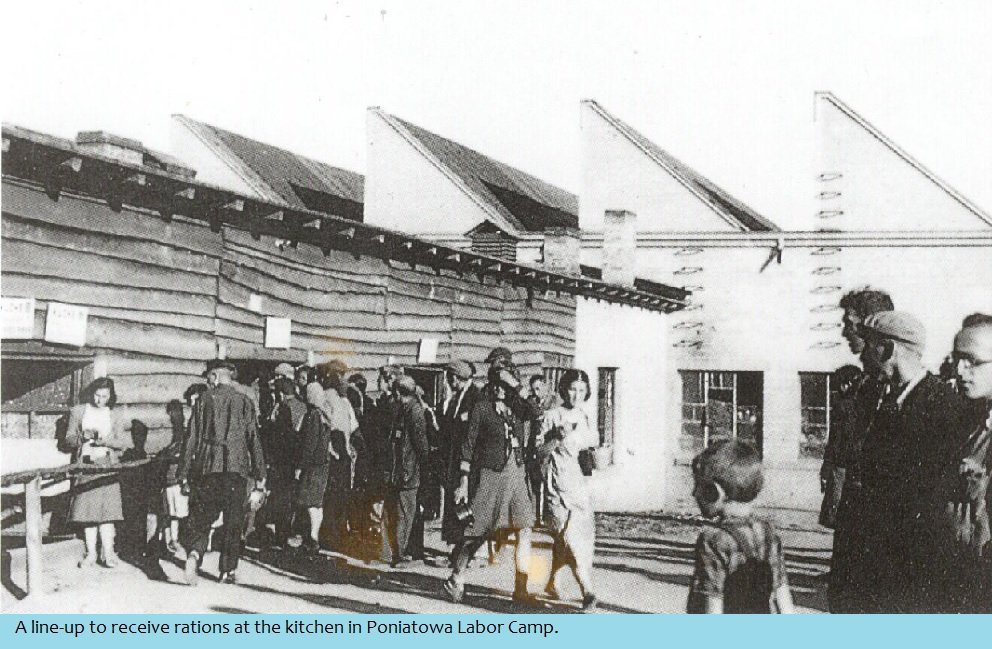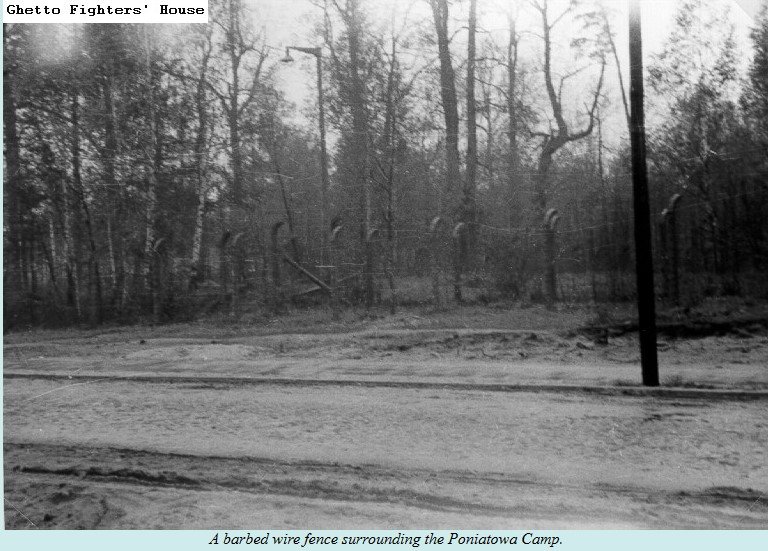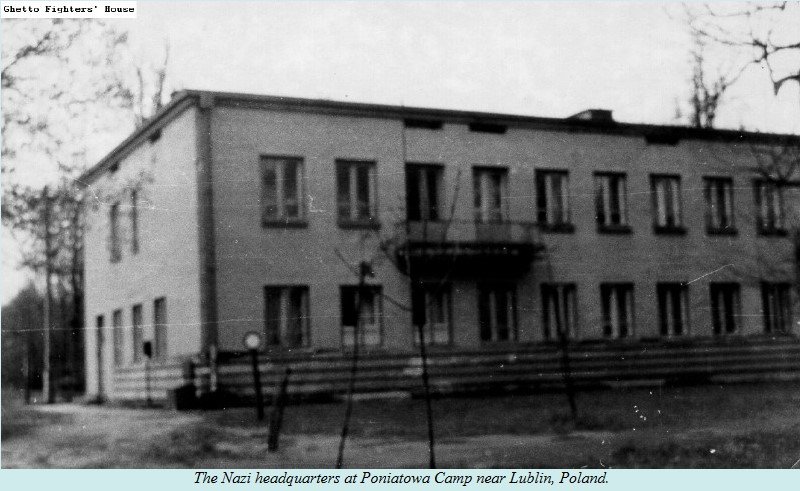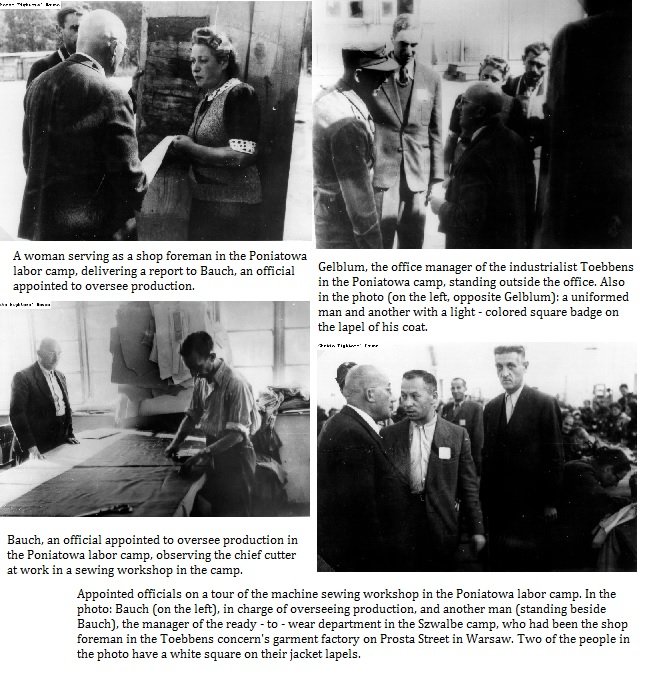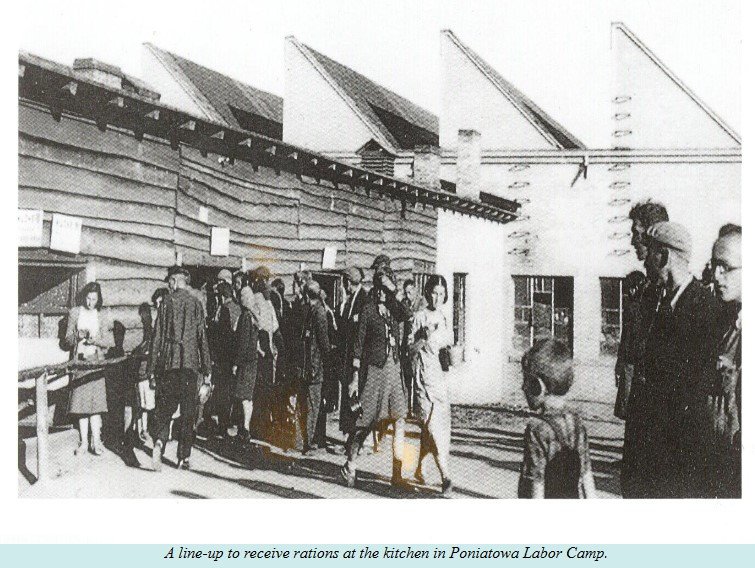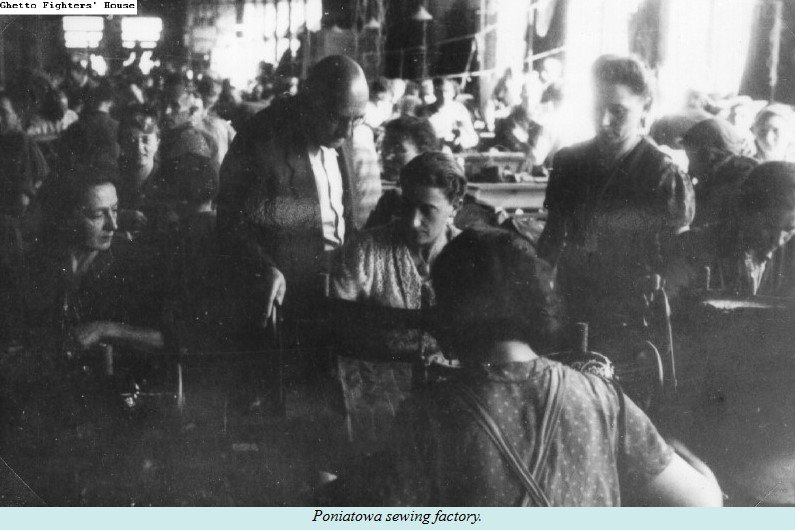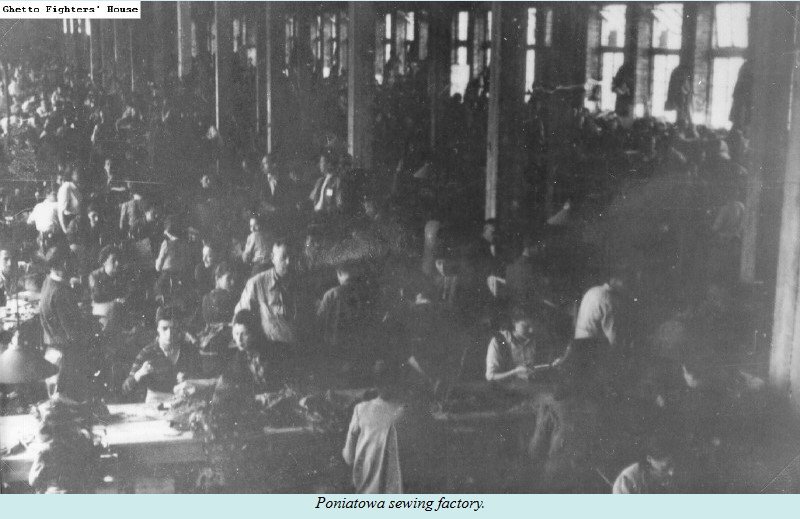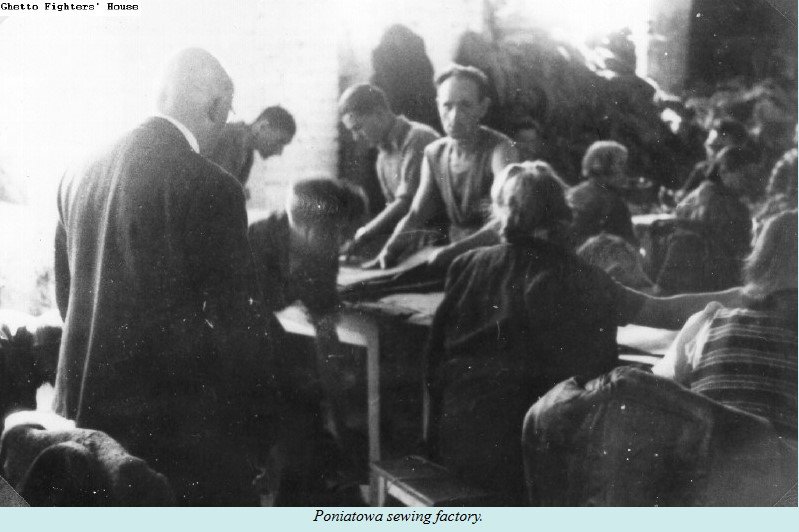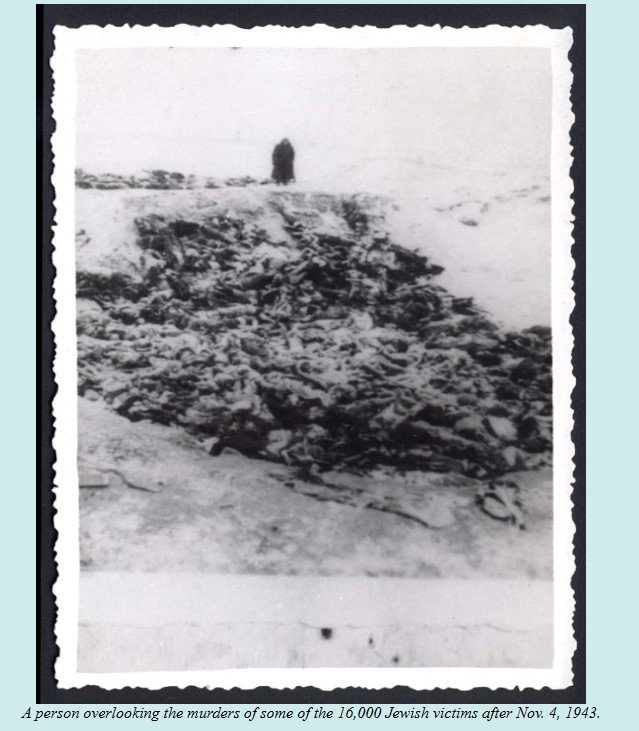Memorial for the Victims of the Poniatowa Death Camp
Poniatowa was a forced labor and concentration camp near to Lublin in eastern Poland, wherein the first Jews arrived in October 1942. By January of 1943, some 1,500 Jews were interned there. After the Warsaw Ghetto Uprising in April 1943, 16,000 to 18,000 more Jews were brought to Poniatowa. Ten thousand prisoners were made to work in a textile factory that had been transferred from the Warsaw Ghetto. The rest worked at various outdoor jobs. Hundreds of prisoners were executed or tortured to death by the S.S. staff and the Ukrainian guards.
In conjunction with the Poniatowa camp, a series of ghettos and labor camps were established by the S.S. These included:
- Chodel Labor Camp
- Janiszow Labor Camp
- Karczminska Labor Camp
- Krzesimow Labor Camp
- Laziska Labor Camp
- Marysin Labor Camp
- Naleczow Labor Camp
- Piotrawin Labor Camp
- Rozalin Labor Camp
- Wilkow Labor Camp
- Wymyslow Labor Camp
Unfortunately, very little information exists regarding the details of any of these camps due to the lack of Shoah survivors.
The Jewish tailors and seamstresses of Warsaw worked free of charge for the German war profiteer Walter Caspar Tobbens (Toebbens), whose factory was in the Poniatowa Labor Camp.
As part of the Aktion Erntefest, the camp was surrounded by S.S. troops on November 4, 1943. The prisoners were taken to pits that had been dug previously, were forced to strip naked, and 16,000 of them were shot on top of the other prisoners. In one of the barracks at Poniatowa, Jews staged a revolt. To stamp it out, the S.S. set the building on fire and the killings went on as planned.
A partial listing of the Nazis and Ukrainian guards involved at the camp is here. One witness recalls a "Nazi riding on a horse" who "inspected prisoners upon arrival to the camp."
Known transports to Poniatowa included:
- A group of Jewish prisoners from Belzyce were sent to Poniatowa (Oct. 1942).
- A group of 600 Jewish prisoners from Opole Lubelski were sent to Poniatowa (Oct. 15, 1942).
- A group of 800 Jewish prisoners from Staszow were sent to Poniatowa in Nov. or Dec., 1942.
- Groups of prisoners from the Warsaw Ghetto, approximately 15,000 Jews, were sent to Poniatowa (Between Feb. and May 1943);
- A group of 400 prisoners from Deblin were sent to Poniatowa (May 1943);
- A group of 810 prisoners from Treblinka Camp were sent to Poniatowa (May 1943);
- A group of 3,000 Jews "fit for work" from Bialystok were sent to Poniatowa (late August, 1943).
- A group of prisoners from Deblin -- who had been working in forced labor at the camp near the train station -- were sent to Poniatowa (September 1943).
- Dorohucza Labor Camp was liquidated and around 100 prisoners from there were sent to Poniatowa (late 1943).
Related Links:
- Aktion Erntefest
- Dorohucza Death Camp
- Majdanek Death Camp
- Names of the Poniatowa S.S. men (incomplete)
- Original testimony from Ludwika Fisher
- Piaski Transit Ghetto
- Trawniki Training and Death Camp
Testimonies from Poniatowa:
- Juan Bartczak
- Jack Baum
- Ludwika Fiszer
- Abram Goldman
- Marianna Kurkowska (not a prisoner)
- Henry Malkin
- Tova Rabinowitz
- Estera Rubinsztajn
- Stefania Staszewska-Balbin
- Irena Stojak (not a prisoner)
Escapees/Transports from Poniatowa:
- Leo Arnfeld
- Victor Cynamon
- Genia Edlerman
- Pola Elster
- Tula Gedanken
- Leon Pesses
- Israel Shahak
- Stefania Staszewska
Survivors from Poniatowa:
- Ludwika Fiszer
- Estera Rubinsztejn
Victims from Poniatowa:
(Partial Listing)
- Efraim Barasz, Bialystok community leader
- Joseph Chomski
- Regina Cukier, an operetta from Warsaw
- Dr. Berthold Dobrin
- Melech Fajnkind from Warsaw
- unknown Geldblum
- Mordke Goldwaser from Staszow
- Ze'ev Korngold, ZZW partisan fighter
- Samuel Kroszczor, director of Nowosci Theatre in Warsaw
- Chana Lerner, actress from Warsaw
- Szloma Kuman and family from Staszow
- unknown Lothe
- Parents of Kopel Pizyc
- Moshe Siten from Warsaw
- Shlomo Siten from Warsaw
- Rywka Rozalia Szyfman from Warsaw
- David Zeiderman from Warsaw
- Son of David Zeiderman from Warsaw
